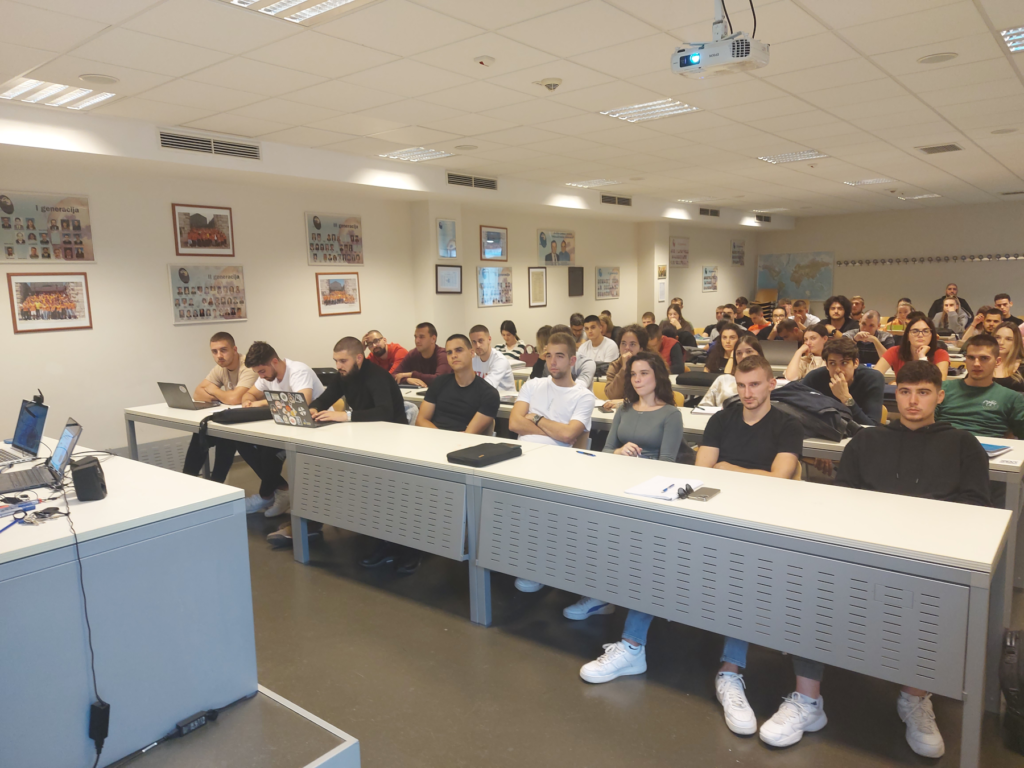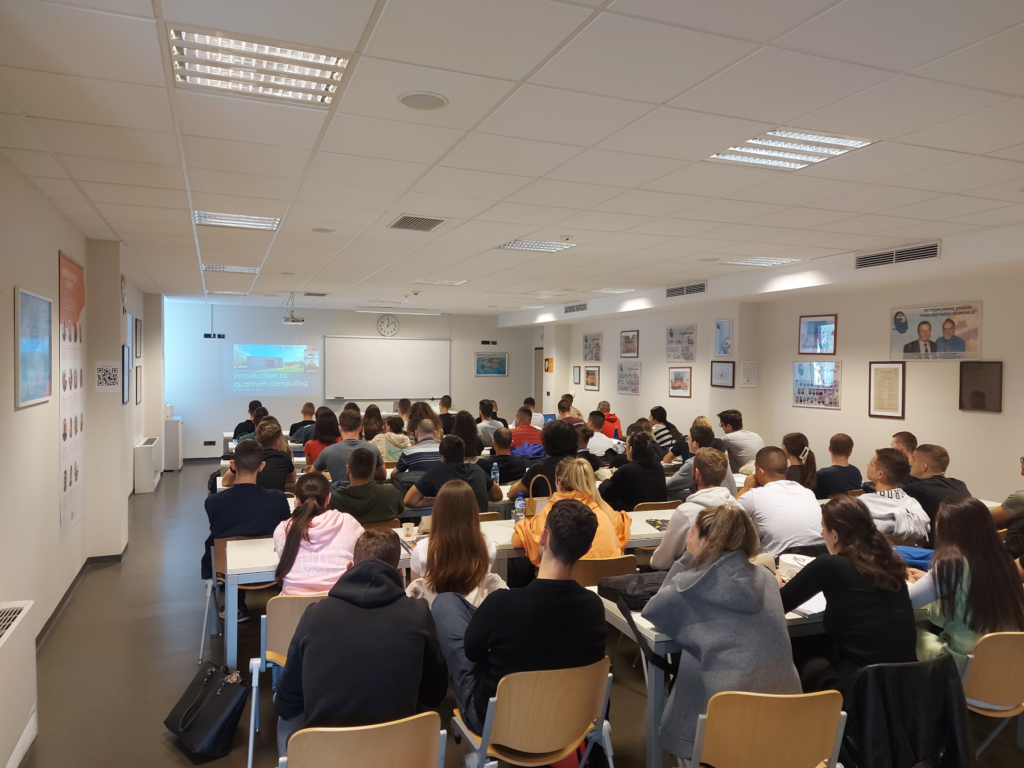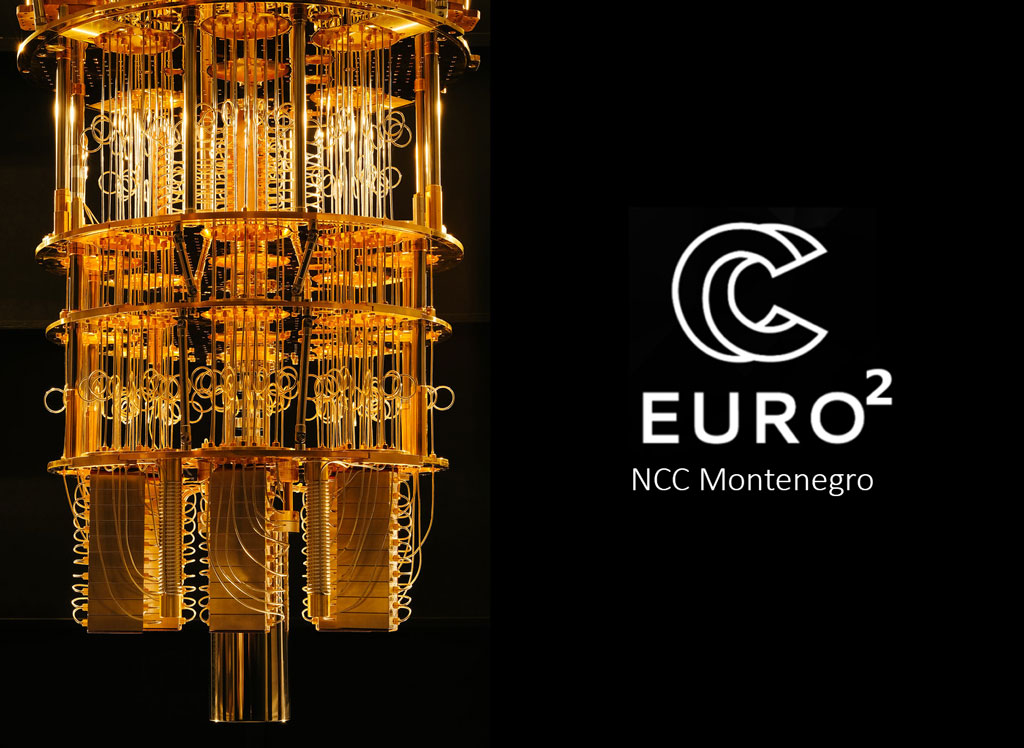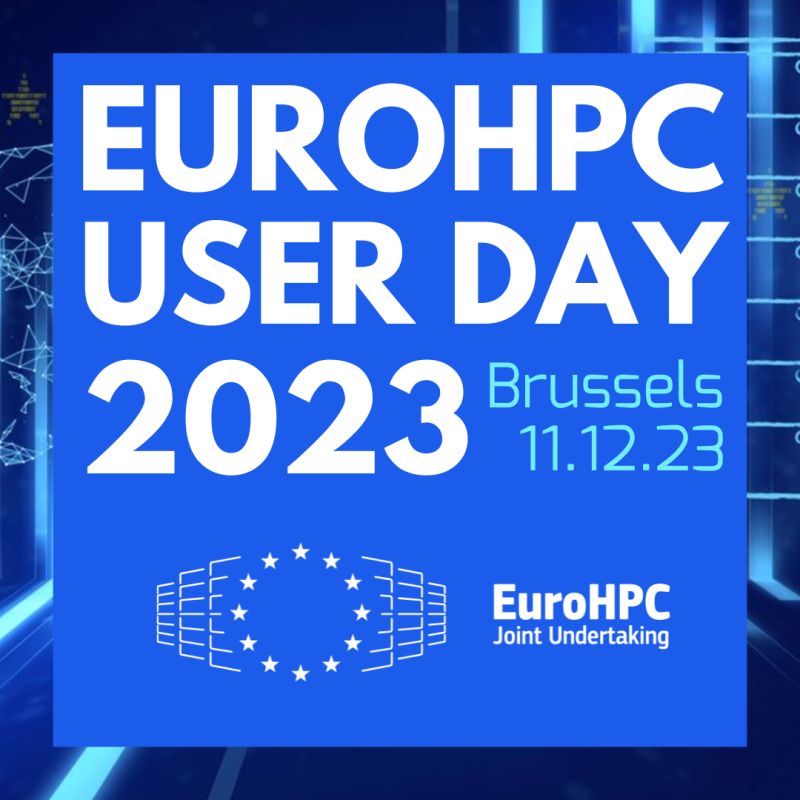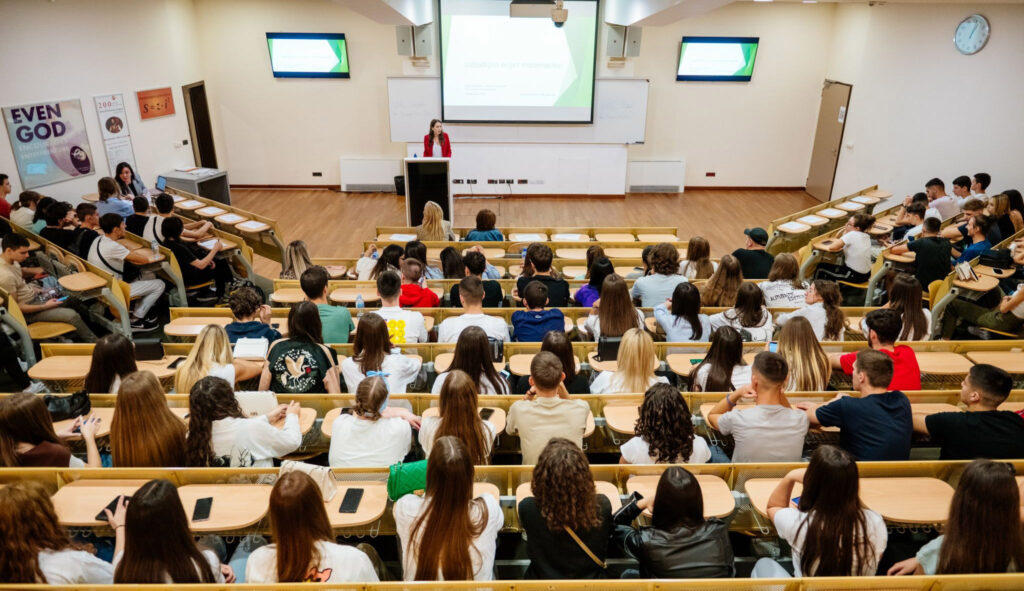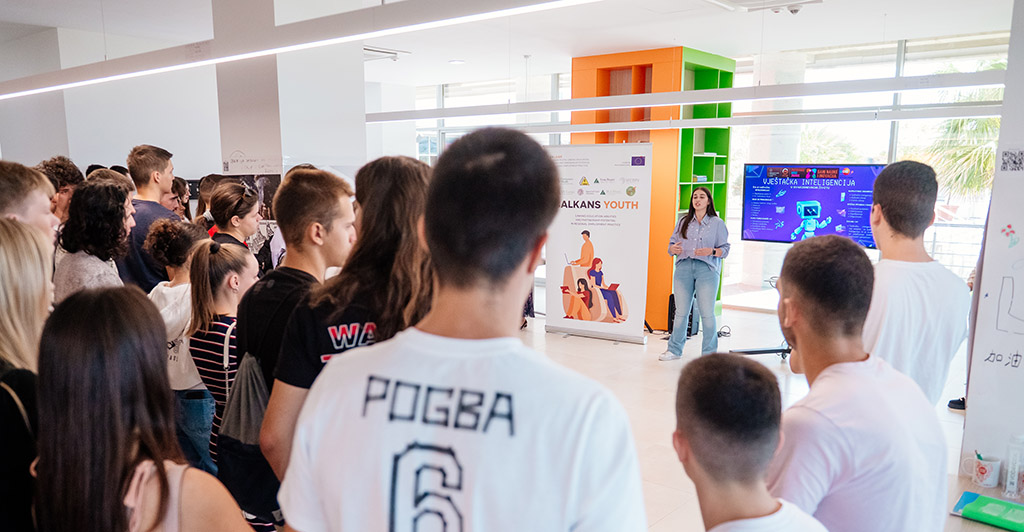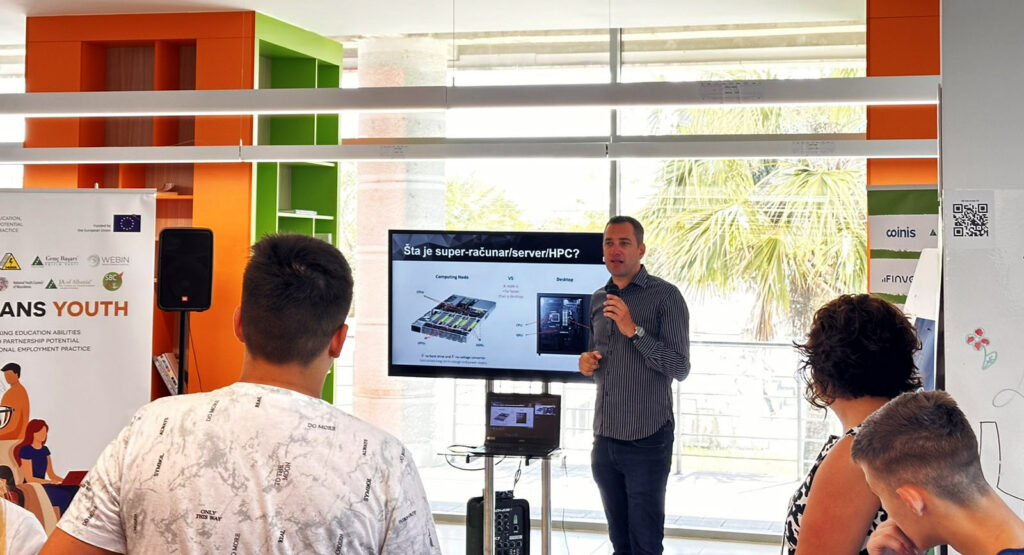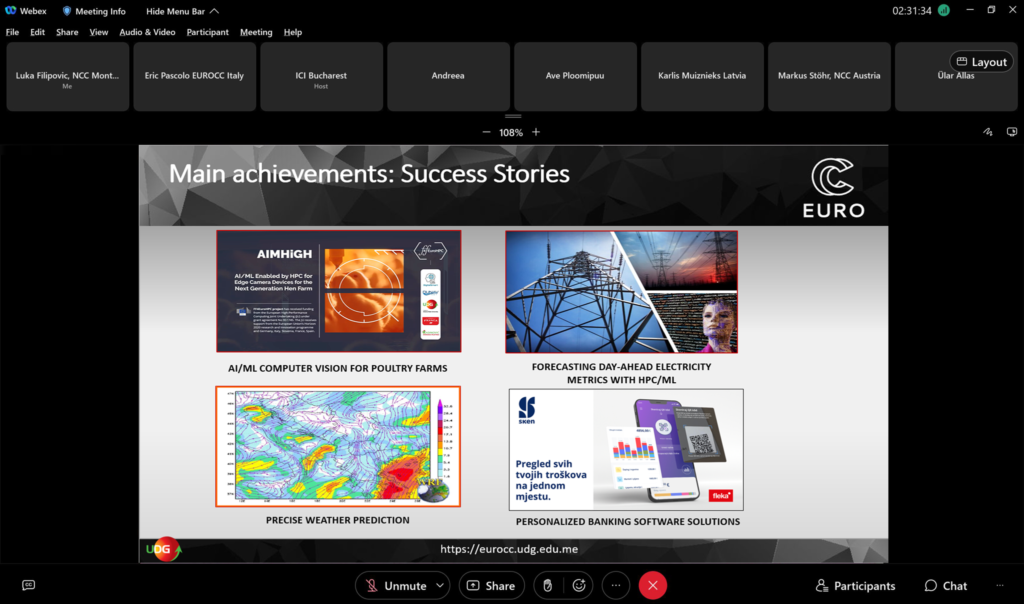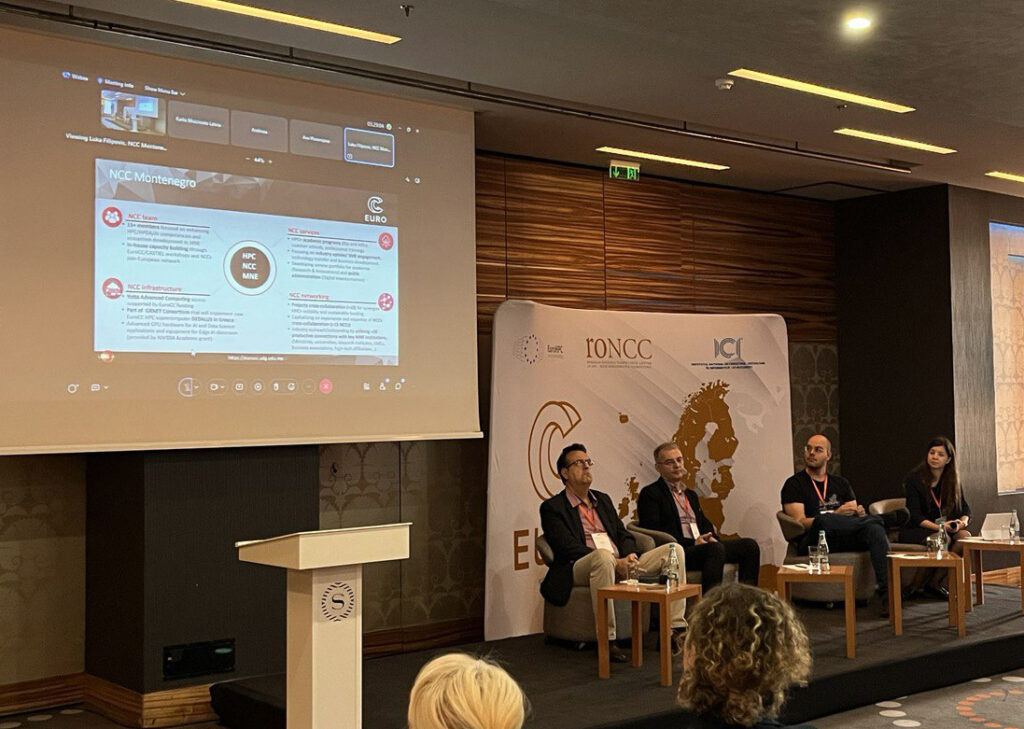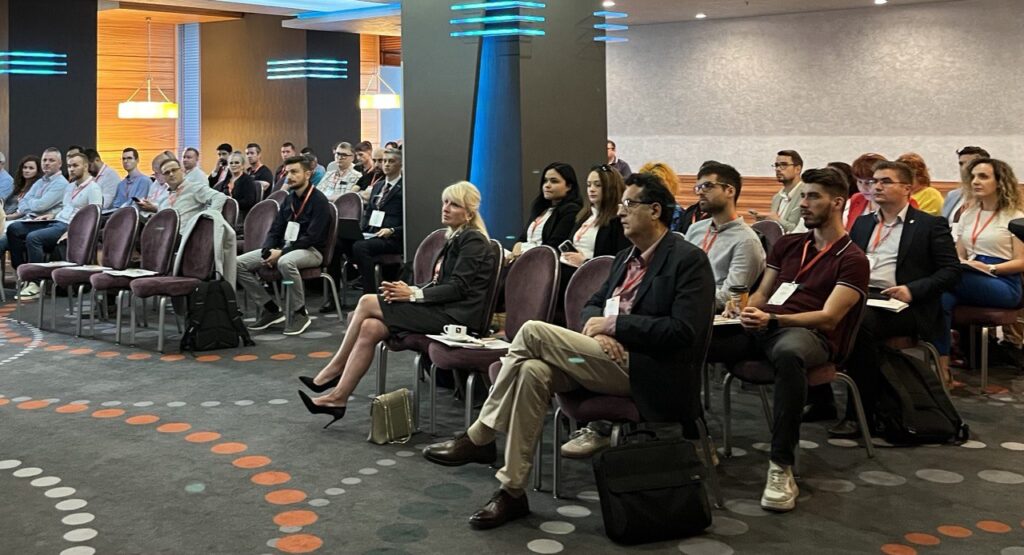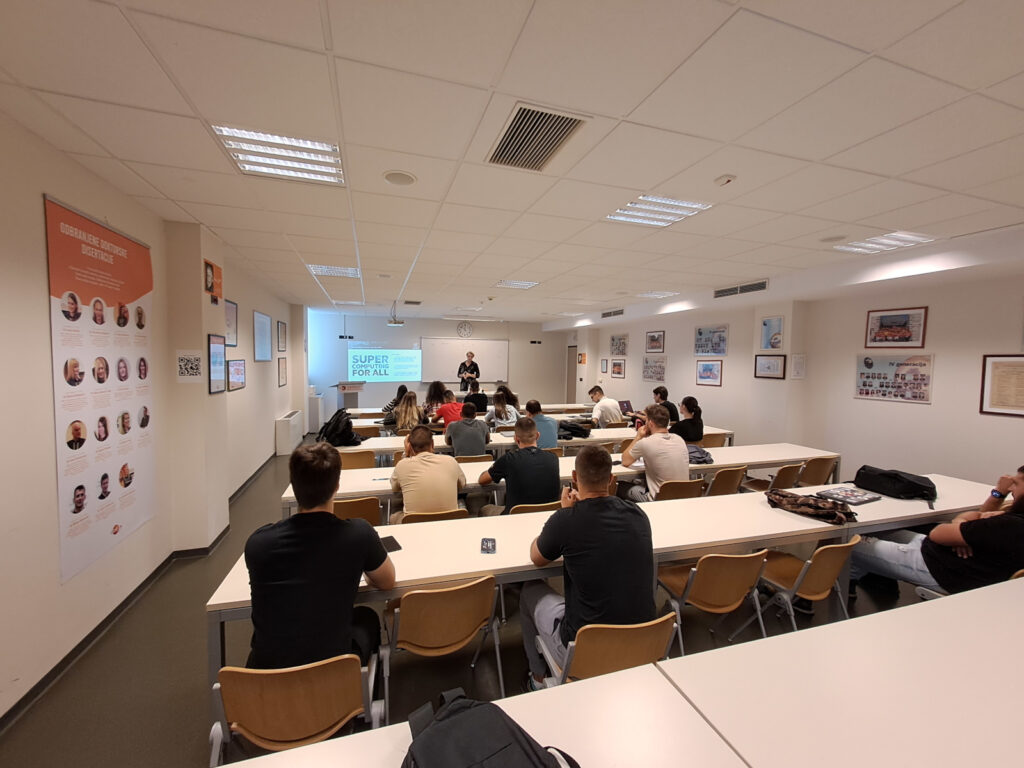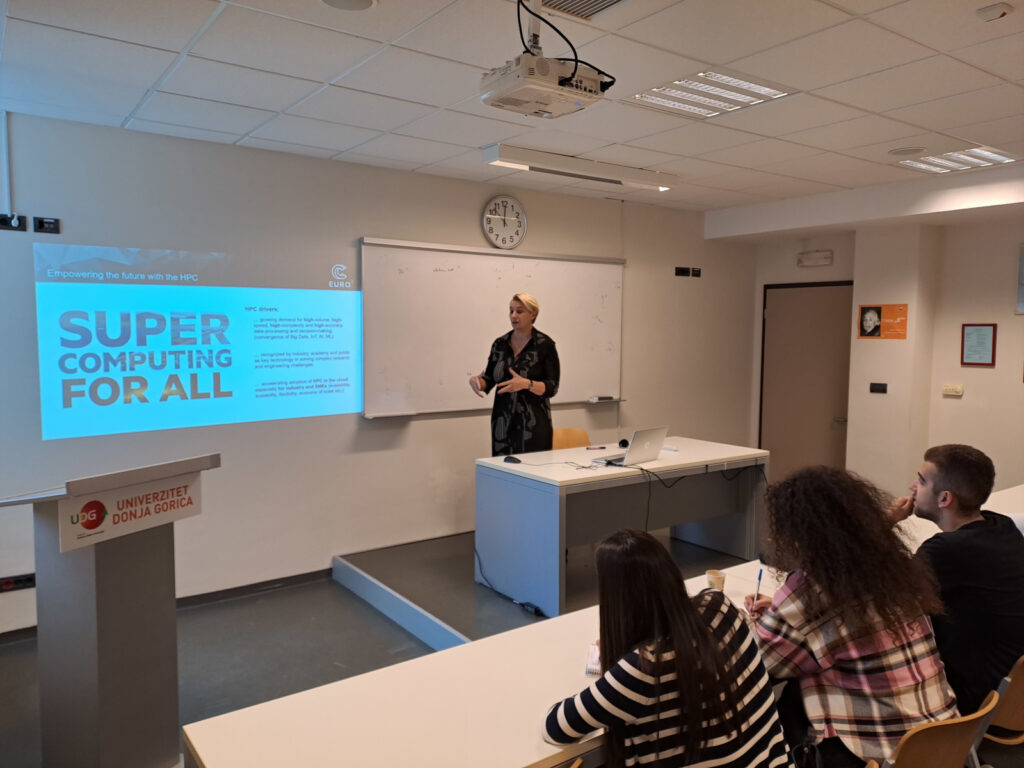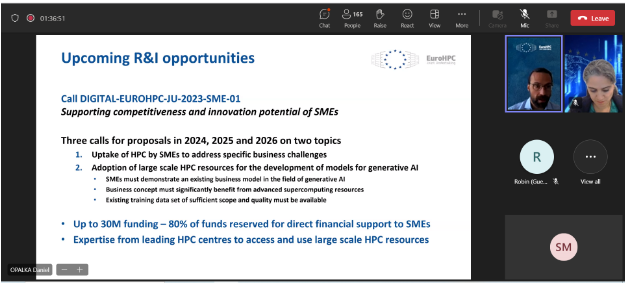On the 20th of October 2023, Dr. Jaka Vodeb gave a lecture on the topic of quantum computing to the students of the University of Donja Gorica (UDG) and NCC Montenegro academic and industry partners.
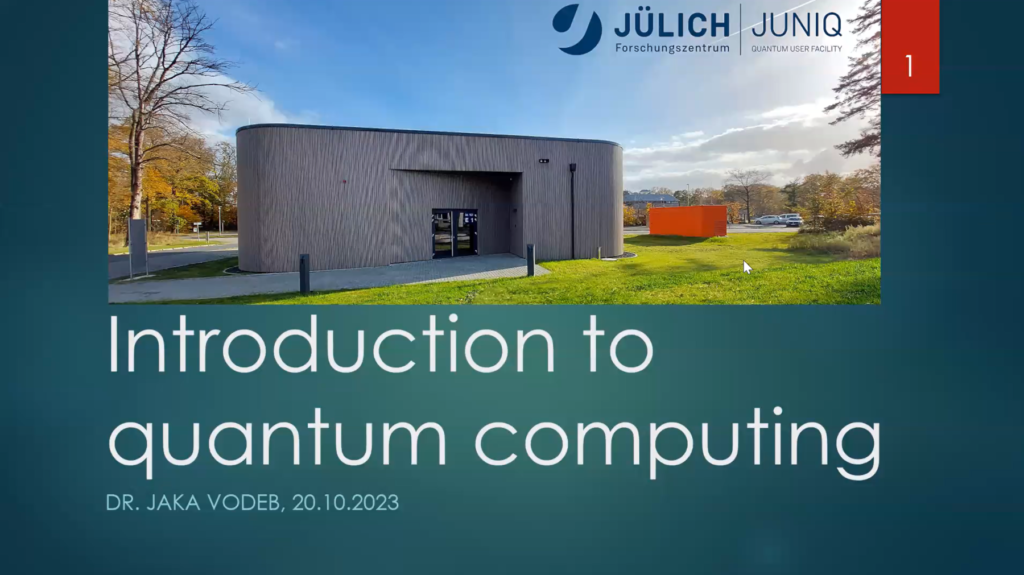
During the lecture, Dr. Vodeb addressed several key aspects of quantum computing, including its historical development, early stages, and the motivating factors behind its advancement. Additionally, he provided insights into the current state of quantum hardware and various quantum algorithms. At the end, he presented success stories where quantum computing demonstrated superior performance compared to conventional computing methods. Quantum computing lecture was organized as a fruitful collaboration between NCC Germany and NCC Montenegro. There was around 70 attendees at the lecture.
